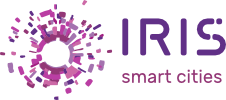
“Knowledge-intensive business services can power urban transformation,” says analyst David Mooij.
By Gloria Pallares
Smart cities harness technology to improve the urban environments that are home to more than half of the world’s population. The search for innovative energy, mobility and ICT solutions is at the heart of the movement, but the role of start-ups remains largely unexplored.
As a part of his thesis for an MSc in Economics at Utrecht University, business analyst David Mooij decided to investigate the conditions that favour, or limit, the creation of smart city star-ups in Europe. He focused on the effect of entrepreneurial ecosystem elements such as institutions, physical infrastructure and knowledge.
In our conversation with Mooij, we discussed how start-ups can accelerate the transition towards smarter cities, what they need to flourish, and how he sees urban environments evolving in the coming years.
-Why are start-ups particularly well positioned to improve life quality in urban areas?
As compared to larger, more established firms, start-ups are more agile and better positioned to bid on disruptive technologies and ideas. Also, they are often created by young people with fresh ideas and a willingness to pursue bold innovations.
-What factors did you find to be important for the development of smart-city start-ups?
The availability and accessibility of intermediate business services such as incubators, accelerators and knowledge-intensive market services –for example, architectural, engineering and legal activities. More research would be needed to further probe the effect of other entrepreneurial ecosystem elements.
-What are other aspects you consider crucial for the creation of smarter urban environments?
Infrastructure is critical because most technological solutions revolve around Information and Communication Technologies (ICTs), specially, the Internet. For example, to track air pollution or traffic in cities you need sensors that are connected to each other. Without ITC infrastructure, there is so smart city.
-You also highlight the need for awareness. Why?
Smart cities can only develop if citizens understand the importance of a more sustainable city with a better living and working environment. Greater awareness means greater support for investments in smart urban solutions, hence its importance.
-How do you envision the cities of the future?
I would like to see cities that are greener, with better air quality and social cohesion. As a citizen, I would be happy to adopt exciting new technological solutions being implemented in Utrecht (The Netherlands), where I live. The COVID-19 pandemic is rising people’s awareness of the living conditions in their neighbourhoods. Hopefully, this will lead to more demand for, and acceptability of, smart city solutions.
08 Mar 2021

